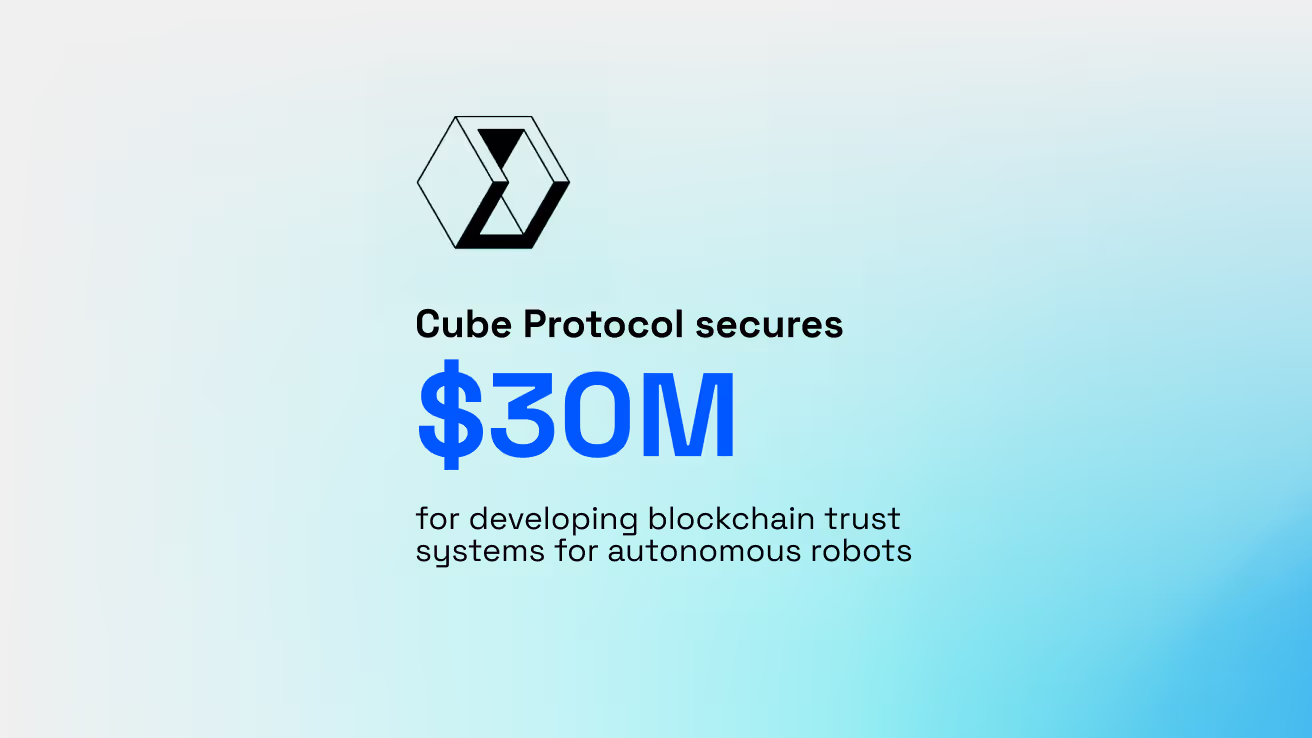Solutions
About Us

In a significant vote of confidence for the UAE's growing technology ecosystem, Cube Protocol, one of the Middle East's fastest-growing AI and robotics innovators has raised over $30 million across seed and Series A funding rounds. The investment, backed by a UAE government initiative supporting advanced robotics and emerging technology, signals the nation's commitment to becoming a global leader in autonomous systems.
Cube Protocol is tackling one of the most challenging problems in robotics: trust and accountability in autonomous operations. As robots become more autonomous and capable, ensuring they operate safely, transparently, and according to regulations becomes increasingly critical. Cube's solution combines cutting-edge robotics with blockchain technology to create a system where autonomous machines can prove their compliance mathematically.
The Trust Problem in Autonomous Robotics
As robots move from controlled factory environments to public spaces, logistics networks, and critical infrastructure, the question of trust becomes paramount. How do you ensure an autonomous delivery robot navigates safely through crowded streets? How do you verify that an industrial robot followed proper safety protocols? How do you audit the decisions made by a fleet of warehouse robots?
Traditional approaches rely on extensive logging, human oversight, and post-incident analysis. But these methods don't scale well when you're deploying thousands of autonomous robots making millions of decisions daily. Moreover, centralized logging systems can be tampered with, creating liability concerns and limiting the ability to deploy truly autonomous systems.
Blockchain as a Trust Layer
Cube Protocol's innovation is to use blockchain technology as an immutable, distributed trust layer for robotic operations. Every significant action, decision, and sensor reading is cryptographically signed and recorded on a blockchain, creating an unalterable audit trail that can be verified by any stakeholder.
This isn't just about logging data, it's about creating mathematical proof that robots operated according to specified rules. The blockchain records don't just show what happened; they prove that the robot followed its programming, respected safety boundaries, and made decisions based on valid sensor data.
How It Works
Cube Protocol's system operates at multiple levels:
Real-World Applications
Cube Protocol is deploying its technology across three primary sectors:
Logistics and Warehousing: Autonomous mobile robots moving goods through warehouses need to coordinate with each other, avoid collisions, and maintain chain-of-custody for high-value items. Cube's blockchain layer provides provable logistics trails and enables robots to autonomously negotiate right-of-way without centralized control.
Manufacturing: On production lines where robots work alongside humans and other automated systems, safety is paramount. Cube's system ensures that robots operate within safety zones, and in the event of an incident, provides irrefutable evidence of what occurred and why.
Service Industries: As robots move into customer-facing roles—delivery, cleaning, security, accountability becomes crucial. Cube's system provides customers and businesses with verifiable records of service delivery and robot behavior.
The UAE Advantage
Cube Protocol's success reflects broader trends in the UAE's technology sector. The government has created an environment conducive to innovation through:
The $30 million funding round will accelerate Cube Protocol's expansion, enabling them to scale their platform, expand into new markets, and refine their technology for increasingly complex autonomous systems.
Technical Innovation Meets Business Reality
What sets Cube Protocol apart is the recognition that technical capability alone isn't enough, autonomous systems need social and legal frameworks to support their deployment. Blockchain-based trust and accountability address the "last mile" problem that has slowed adoption of otherwise capable autonomous systems.
Businesses hesitate to deploy fully autonomous robots because of liability concerns. Regulators struggle to oversee systems they don't fully understand. Insurance companies can't properly assess risk without transparent operational data. Cube Protocol's platform addresses all these concerns simultaneously.
Looking Ahead
As Cube Protocol scales with its new funding, we can expect to see more autonomous systems operating with blockchain-based trust layers. This could accelerate adoption across industries, as the technology addresses one of the fundamental barriers to autonomous robot deployment: the ability to trust and verify their operations.
The UAE's bet on Cube Protocol isn't just about one company, it's about positioning the nation at the forefront of trustworthy autonomous systems. In a world where robots will increasingly operate independently, the ability to verify their behavior cryptographically may become as important as the robotics technology itself.
We're accepting 2 more partners for Q1 2026 deployment.
20% discount off standard pricing
Priority deployment scheduling
Direct engineering team access
Input on feature roadmap
Commercial/industrial facility (25,000+ sq ft)
UAE, Middle East location or Pakistan
Ready to deploy within 60 days
Willing to provide feedback